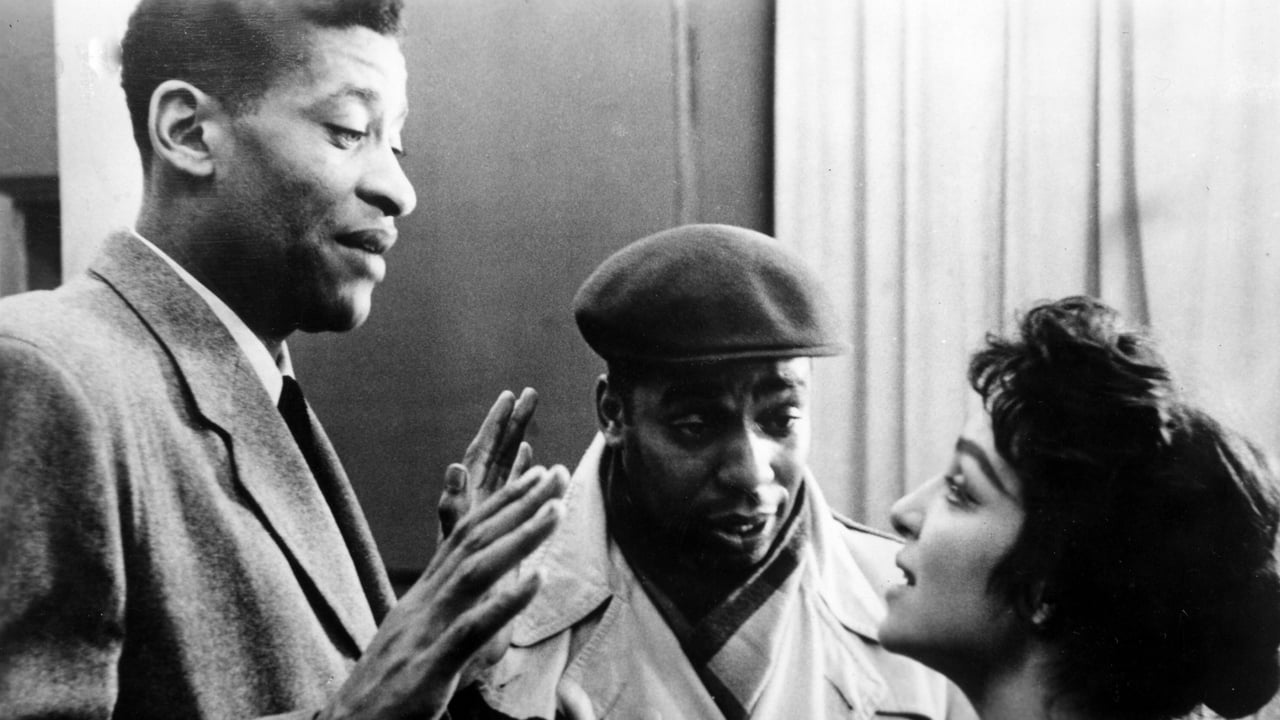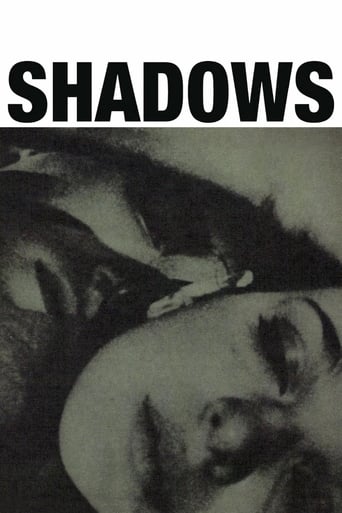

This film is an early blueprint of American independent cinema, as well as a lovely time capsule of late 50's New York City. Back when Cassavetes made this innovative essay of New York City life, he was breaking new ground in the States. Shadows follows three characters from a black family - two brothers and a sister - who each have their challenges. One is a struggling singer, the other a lothario and troublemaker, and the third is a young lady who is innocent yet adventurous. The film is not primarily about race relations, contrary to what some critics prefer to emphasize, nor is it a 'black film'. It is instead a 'slice of life' that Cassavetes would go on to develop further in 'Faces'. Performances are effectively delivered by an ensemble of budding professional actors and complete amateurs. Much of the film was shot 'run and gun' style by handheld Arriflex 16mm film cameras, something independent filmmakers adopted with a frenzy a decade later. Scorsese's fans will note that his premiere 'Who's that Knocking' - filmed 6 years after Shadows' release - seems to borrow heavily from Cassavetes' debut film, as do many other independent films. But this is the film that started it all. Even though it has its flaws, 'Shadows' is not only a groundbreaker but a delightful journey across a swath of characters that Cassavetes has such a talent for portraying.
... View MoreShadows is not a common movie, it does not follows any regular pattern, just like its protagonists: amateur heroes of the Beat Generation in a clearly supposed realistic drama, therefore a social story. This film claims a literary and artistic attitude. It goes one step ahead in narrative release as if was a New Yorker-Nouvelle Vague film. It shares a nervous narration with The Beat Generation literature. Also its music, its rhythm, its aesthetics and its poetic-way. The genuine dialogues, the vague plans, the non-specific and aimless situations and the spontaneity of its Cinematography, makes a fresh and original hipster gem. An art feast. The improvisation exercise, subtly controlled, makes Shadows a vivid and unpredictable movie. Pioneering, unique and essential.
... View MoreFrom director John Cassavetes (Faces, A Woman Under the Influence, The Killing of a Chinese Bookie), this film appeared in the book 1001 Movies You Must See Before You Die, I knew nothing about before finding it listed, so I was hoping it would be interesting. Basically the story is an improvised piece about interracial relationships in Manhattan, New York, specifically between three black siblings and their personal situations. Benny (Ben Carruthers) is a hipster aimlessly moving in and out of the beat scene of the city, and he may be close to trouble. Benny's sister Lelia (BAFTA nominated Lelia Goldoni), who looks more white than African-American, is falling in love with white man Tony (BAFTA nominated Anthony Ray), but she is equally vulnerable as his prejudice comes into play. The eldest of the three siblings is brother Hugh (Hugh Hurd) who is struggling with his singing career, his agent Rupert (Rupert Crosse) seems to be the only person who has faith in his talent. Like jazz the story moves back and forth between the stories of the three siblings, it starts seeing their lives separately before their individual situations bring them together. Also starring Dennis Sallas as Dennis, Tom Allen as Tom and David Pokitillow as David. I can see some reasons why this film was considered a benchmark for it's time, it is interesting to see what the actors come up with while ad-libbing, it certainly inspired independent filmmakers for the future, there might not be very much happening during this, but it is an alright drama. It was nominated the BAFTAs for Best Film from any Source and the UN Award for John Cassavetes. Worth watching!
... View MoreJohn Cassavetes' jazz-scored improvisational film explores interracial friendships and relationships in Beat-Era (1950s) New York City.How fascinating that the characters briefly discuss existentialism, the thoughts of Jean-Paul Sartre and put the film in the context of the beat generation. Those of us not having lived at the time may not be sure how influential Sartre was in his own day. He certainly still is today (2013), but it is nice to see how he influenced thought and film early on. Can any philosopher today claim to have such potency? Can the average person name a living philosopher?The film itself may not be a Beat film, but the action clearly takes place on the edge of the Beat world. Much of the lingo (like "mad chick") works itself into the story, and there is, of course, the jazz theme.The film is said to be an "improvisation", and one wonders to what degree there was a script and how much was truly improv. All the characters share their names with the actors that play them, making the lines much more blurred than in a strictly script-based acting job. This is not to say there was no acting -- the characters are all incredible.Where this picture excels, though, is with racial issues. We see that racism is often really only skin deep -- a black woman with light skin is seen as white, despite having a black family, raised in a black community, and so on. How much should our skin dictate our identity?Cassavetes successfully worked outside the studio framework, and while there may be a lack of budget and polish, what replaces it is a heart and soul the studio never had (and some might say still does not have today).
... View More